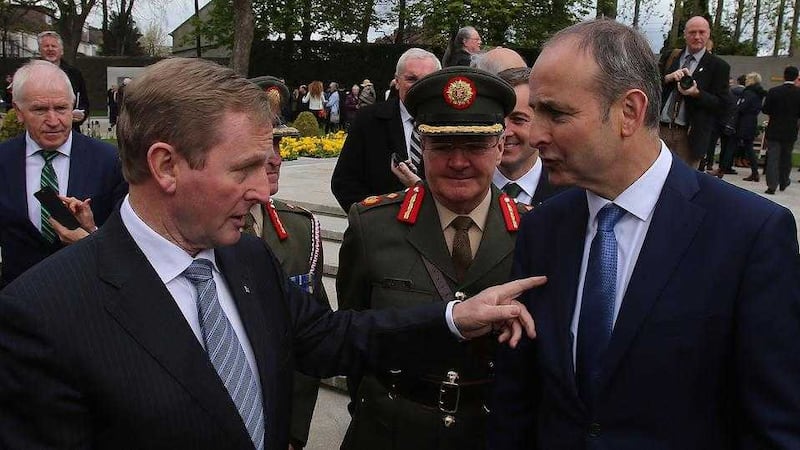THERE are thousands of journalists running around trying to think up images that capture the meaning of the Brexit vote. At the moment, first prize goes to Fintan O’Toole of The Irish Times who compared the result of the referendum to the old conjuring trick of pulling the table cloth from under the crockery – except this time lots of the dishes got smashed.
The magic of the moment is that we are all challenged in finding images and metaphors that capture the mood and the implications of the vote. And that is no bad thing. Images and metaphors beat hard facts hands down any day of the week. Sure isn’t that what most of us were reared on. The genius of Christ was the parable, just another word for an image or a metaphor – the good Samaritan, the good shepherd, the prodigal son...
These months and the coming years are and will continue to be the most politically fruitful and transforming that any of us will ever experience in our lifetime. The speed and the magnitude is way beyond anything that could have been imagined. O’Toole’s table will inevitably be reset with new dishes and it might look a bit different or a whole lot different, depending on the ingenuity of our politicians. But the certainty is that it is not going to be the same.
The dominant and determining vote was in England and about England. Fifty three million people crowded on a small island measuring 50,337 square miles – little of the wilderness of Scotland or the spaciousness of Ireland. Too much concrete and too much traffic. Allowing that many of the Leave votes were about local and national issues, it would still be foolish and patronising to underestimate the potency of the image of Nigel Farage pointing to the poster of a queue of migrants and refugees under the words `Breaking Point'.
It is too easy to sneer with a ‘little Englanders’ remark. Many of these people genuinely feel that their culture and their identity is being eroded by the free flow of people that European attachment demands. Partially under the weight of this fear and distrust, English nationalism asserted itself. The assertion itself was not arrogant but the failure to take Scottish and/or Irish nationalism into account was. English nationalism showed no care or respect for their sister nationalists.
But that assertion of English nationalism has gifted Scottish and Irish nationalism a stature and respectability that they previously lacked. Overnight, their image shifted from the radical to the conservative, from the irresponsible to the cautious, from the wayward to the upright. It is English nationalism that is breaking out into the unknown, sailing into choppy waters without a complete set of navigational charts. Roles are reversed, self images are changed. (I am aware that I make no reference to Wales – they don’t appear to be sure of much themselves).
Seamus Heaney wrote of a ‘symbolic reordering of Ireland’ which was open to new possibilities of “Irishness, Britishness, Europeanness, planitariness, creatureliness, whatever...” But that image is now past its sell-by date. It is now a reordering of Ireland, Scotland, England and Wales and maybe even of Europe. That is what is going to dominate politics for the next few years and most of us are going to have an ‘ear’ to every turn and twist on the road. There will be few cries of ‘boring politics’.
The imagining has already begun. Serious writers and commentators have engaged. There are articles coming from the pens of journalists about Ireland, the north, the border – journalists who haven’t dipped their toes in those waters for donkeys’ years. Enda Kenny and Micheal Martin are dancing the hokey cokey with notions of unity and border polls. But there is no doubting that they are now at the dance. Arlene Foster, Reg Empey and a handful of unionists are getting hot and bothered about taoisigh and forums and people butting into matters that are none of their business. A sure sign that they are nervous and only too aware of the import of the matter.
It is not often that politics and politicians are presented with an opportunity to wrestle with an issue that changes reality for the better and for ever. This is such a moment.
Brian Friel wrote in one of his plays that ‘confusion is not an ignoble condition’. This confusion is a glorious opportunity to redefine and reposition all the national interests of these small islands.









